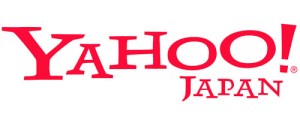
Yahoo might have entered into a ten-year deal with Microsoft to have Bing handle Yahoo’s searches behind the scenes, but that deal does not extend to all the Yahoo businesses around the world…and today Yahoo Japan officially zigged rather than zagged, announcing it would be turning to Google to power its searches, rather than going with Microsoft. Yahoo Japan is an independent company, although Yahoo owns about a one-third stake in the operation. Yahoo Japan’s searches are currently being handled by Yahoo’s own search technology, which is being replaced by Bing: by going with Google, Google will be responsible for almost all search traffic in Japan, one of the world’s largest Internet markets.
“We are very pleased to form an alliance with Google, which offers its service globally and has a very good reputation among Japanese Internet users,” said Yahoo Japan president and CEO Masahiro Inoue, in a statement.
One driving factor in Yahoo Japan’s decision was apparently technical: at a news event, Inoue indicated Yahoo Japan has seriously evaluated Microsoft’s search technology, but didn’t find it capable of meeting Yahoo Japan’s needs, particularly in areas of Japanese language search. Yahoo Japan also said it is confident their alliance with Google will not run afoul of Japanese antitrust regulations.
The deal will also see Yahoo Japan adopting Google’s paid keyword search advertising system, as well as making its content available to Google services. Yahoo Japan said that it doesn’t expect the arrangement will alter its relationship with Yahoo proper: it expects to keep using the Yahoo brand and have Yahoo in board as a stakeholder and strategic partner.
Yahoo Japan’s biggest shareholder is Softbank Corp.


